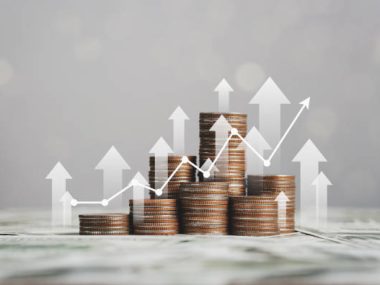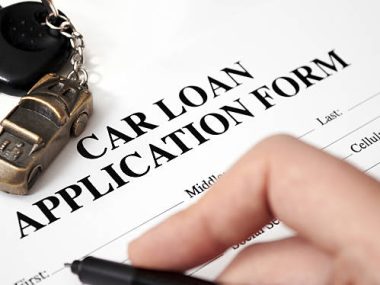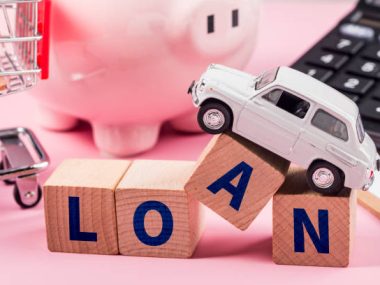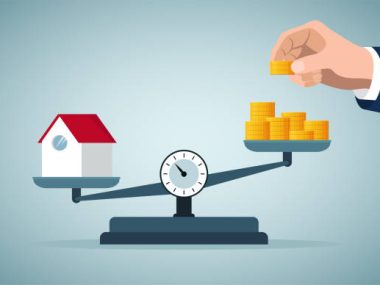If you are searching for how to convert private student loans to federal, you are in the right place!
Navigating the realm of student loans can be a complex and daunting task, particularly when it comes to managing the financial burden of higher education.
If you find yourself weighed down by the repayment terms of private student loans, there may be a solution that can alleviate some of the stress – converting your private student loans to federal loans.
This strategic move could potentially unlock a range of benefits, such as flexible repayment plans, lower interest rates, and enhanced borrower protections.
In this article, we will delve into the intricacies of converting private student loans to federal loans, providing you with a comprehensive roadmap to explore the process.
By understanding the steps involved and the potential advantages, you’ll be better equipped to make an informed decision about whether converting your private student loans to federal loans is the right move for your financial future.
Also Read:
Can You Get an FHA Loan Twice?
Can You Use a VA Loan to Buy Land?
How to Convert Private Student Loans to Federal
Converting private student loans to federal loans can offer significant financial relief and flexibility for borrowers facing the challenges of loan repayment.
The process involves transitioning from a private lender to the federal government, enabling access to a diverse array of repayment plans, lower interest rates, and enhanced borrower protections.
To embark on this conversion journey, begin by understanding the eligibility criteria set by the federal government.
Generally, borrowers need to meet specific requirements related to enrollment status, loan type, and loan status.
Next, initiate the conversion process by completing the Free Application for Federal Student Aid (FAFSA) form, which is a pivotal step in determining your eligibility for federal programs.
The form collects crucial financial information and helps establish your qualification for various federal assistance programs.
Once your eligibility is confirmed, your private loans can potentially be refinanced into a Direct Consolidation Loan, which merges your existing loans into a single federal loan with a fixed interest rate.
Alternatively, explore income-driven repayment plans tailored to your financial situation, allowing for manageable monthly payments based on your income.
Overall, converting private student loans to federal loans necessitates thorough research, careful consideration of eligibility requirements, and adherence to the prescribed application processes.
By making this conversion, borrowers can unlock invaluable benefits that can lighten the burden of student loan repayment and provide a more stable financial future.
Benefits of Converting Private Student Loans to Federal
Converting private student loans to federal loans offers a range of compelling benefits that can significantly alleviate the financial strain on borrowers.
One notable advantage is access to a broader spectrum of flexible repayment plans.
Federal loans provide options such as income-driven repayment plans, which cap monthly payments at a percentage of your income, making payments more manageable during periods of financial uncertainty.
Additionally, federal loans often come with lower fixed interest rates compared to potentially fluctuating rates of private loans.
This can lead to substantial long-term savings, allowing borrowers to channel more resources toward other essential expenses.
Federal loans also offer enhanced borrower protections, including the possibility of loan forgiveness through programs like Public Service Loan Forgiveness (PSLF) and Teacher Loan Forgiveness.
These options are typically unavailable or less favorable with private loans.
Moreover, federal loans prioritize borrower safeguards, like deferment and forbearance options, which provide temporary relief from payments in cases of economic hardship or unexpected life events.
Converting to federal loans can simplify loan management by consolidating multiple private loans into a single federal loan, streamlining administrative processes, and reducing the chances of missed payments.
Overall, converting private student loans to federal loans empowers borrowers with a safety net of versatile repayment plans, potential loan forgiveness, and essential borrower protections, all contributing to a more stable and manageable financial future.
Eligibility Criteria for Converting Private Loans to Federal
Converting private student loans to federal loans involves meeting specific eligibility criteria established by the federal government.
While these criteria can vary depending on the program, certain general requirements typically apply.
Firstly, to be eligible for loan conversion, you must be a U.S. citizen or an eligible non-citizen.
You should also have a valid Social Security number and be enrolled in an eligible educational institution as at least a half-time student.
Your existing private loans should be eligible for consolidation or conversion, which often means they must be in repayment or in their grace period.
Loans in default may require rehabilitation before they can be considered for conversion.
Completing the Free Application for Federal Student Aid (FAFSA) is a crucial step, as eligibility for most federal programs, including loan conversion, is determined based on the information provided in this application.
Financial need may play a role in qualifying for certain federal benefits.
Keep in mind that specific federal loan conversion programs, such as income-driven repayment plans and loan forgiveness options, may have additional eligibility requirements based on factors like income, family size, and the type of federal loans you’re seeking.
Overall, meeting eligibility criteria for converting private loans to federal involves factors like citizenship, enrollment status, loan type, and FAFSA completion.
Understanding these criteria is pivotal in determining whether you qualify for the potential benefits and flexibility that federal loans can offer.
Also Read:
How to Become a Loan Officer with No Experience
How Long Does a Home Equity Loan Take?
Conclusion
Converting private student loans to federal loans presents a strategic opportunity for borrowers to gain financial relief and flexibility.
By navigating eligibility requirements, completing the FAFSA, and considering available federal programs, borrowers can access lower interest rates, adaptable repayment plans, and enhanced borrower protections.
This conversion holds the potential to alleviate the burden of loan repayment, providing a clearer path to a stable financial future.
As with any financial decision, careful research and expert guidance are essential to make an informed choice tailored to individual circumstances.
Ultimately, exploring the option of converting private student loans to federal loans can lead to a more manageable and secure educational debt repayment journey.






